Specifications
Qualcomm Chip + Cirrus Logic DAC + Balanced circuitry
Inside, the new iFi GO blu enjoys a versatile Bluetooth chip provided by Qualcomm, namely the QCC5100 giving the DAC full support of every new codecs: apX Adaptive, aptX HD, Sony’s LDAC, and even HWA’s LHDC. Of course, if like me, you are an Apple user, there’s still the good old AAC, or even SBC, the “plain vanilla” Bluetooth codec.
Apart from SBC and AAC, that means that you can stream 24bit files up to 48kHz in aptX HD, and up to 96kHz in LDAC/LHDC. More than enough for a small Bluetooth DAC, especially when you’re on the go.
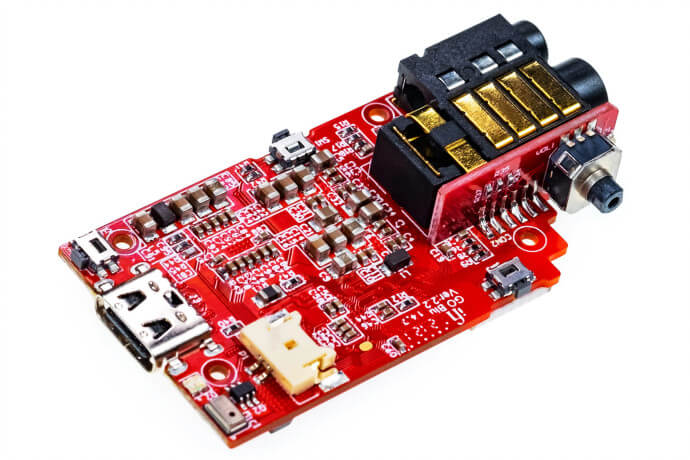
Paired to that chip, you have the popular CS43131 from Cirrus-Logic, a solid DAC able to deliver up to 130dB of dynamic range and full 32-bit support. It’s a DAC you can already find in NuPrime’s Hi-mDAC or the Astell&Kern SR25, two great DAP/DAC.
Last but not least, iFi managed to fit in a tailored version of its famous symmetrical twin-mono amp circuitry, Direct Drive, allowing the amp section to deliver up to 5.6V through the balanced output. A nice feat combined with an auto-gain (+6dB) to automatically adjust the output power.
S-Balanced + xBass + xSpace
Yet, the “piece of resistance” remains the S-Balanced circuitry. iFi advertises the system as “Whether you use balanced or non-balanced headphones, you get the least noise and best channel separation for the most enjoyable music.”
A cool feature that mainly works when you’re using the 3.5mm output since the 4.4mm already has the right pins to fully enjoy the brand’s balanced amp system.
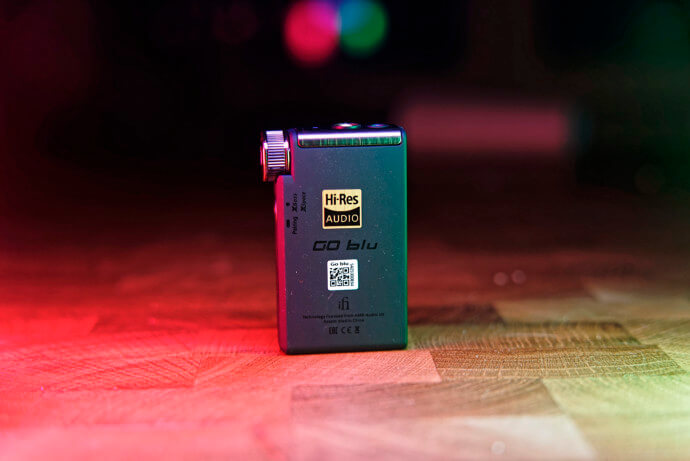
Of course, the iFi GO blu also gets TDK and muRata capacitors to ensure a minimal level of noise, even when Bluetooth is in use.
To that, you can add iFi’s usual VST, which can be turned on/off from the function switch. xBass adds a good boost in the lower hand and expands the soundstage thanks to various enhancements, while xSpace only widens the soundstage.
Those are cool features, but to be perfectly honest, I almost never used them, apart for a few minutes, out of curiosity.
For the nerdiest one, here are the full technical data, for the rest, you can go to the next page already.
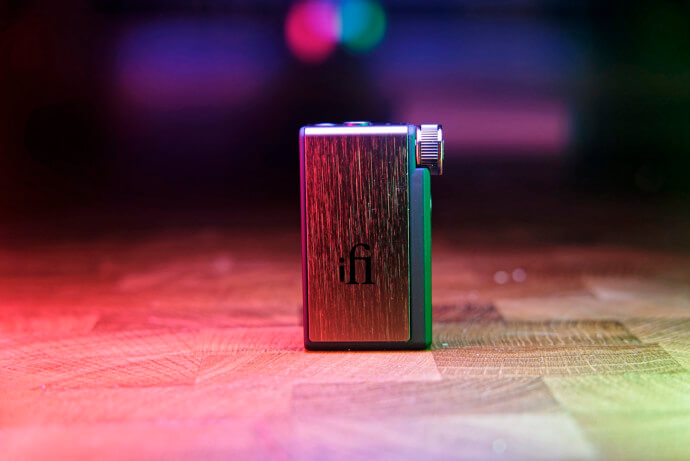
Technical Data
- Model: iFi Audio GO blu
- Type : Bluetooth headphone amplifier-DAC
- Headphone Outputs: 4.4mm / 3.5mm
- Bluetooth codec supported: aptX, aptX HD, aptX LL, aptX adaptive, LDAC, LHDC, SBC, AAC
- DAC: Cirrus Logic CS43131
- Bluetooth chipset: Qualcomm QCC5100
- THD: 0.009% (balanced) / 0.03% (single-ended)
- SNR: > 111dB (balanced) / > 116.5dB (single-ended)
- Power output: 245mW @ 32Ω; 5.6v @ 600Ω (balanced) / 165mW @ 32Ω; 2.8v @ 600Ω (single ended)
- Output impedance (headphone): near 1 ohm
- Frequency Response: 20Hz – 20kHz (0.3dB)
- Battery life: up to 10h
- Lithium-polymer: 450mAh (charging with 1000mAh)
- Size: 54 x 34 x 13 mm
- Weight: 27g
- Price: $199
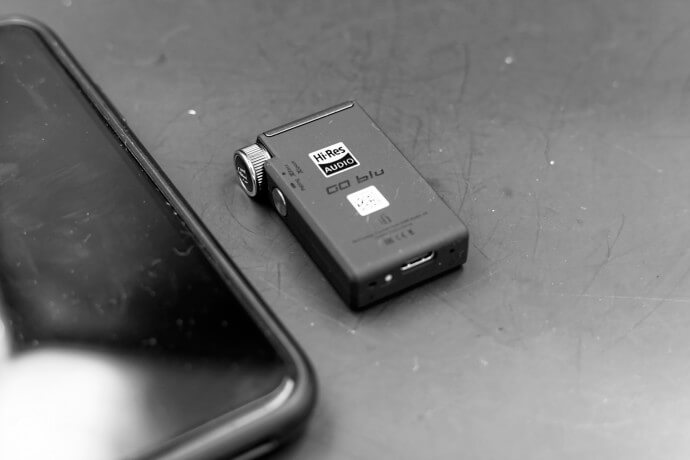
The review continues on Page five, after the click HERE or by using the jump below.
Page 1: iFi, iFi Products, GO blu
Page 2: Design & Build Quality
Page 3: UI & Usage
Page 4: Specifications
Page 5: Sound performances
If you arrived at this page directly, please click here to start reading in the beginning:





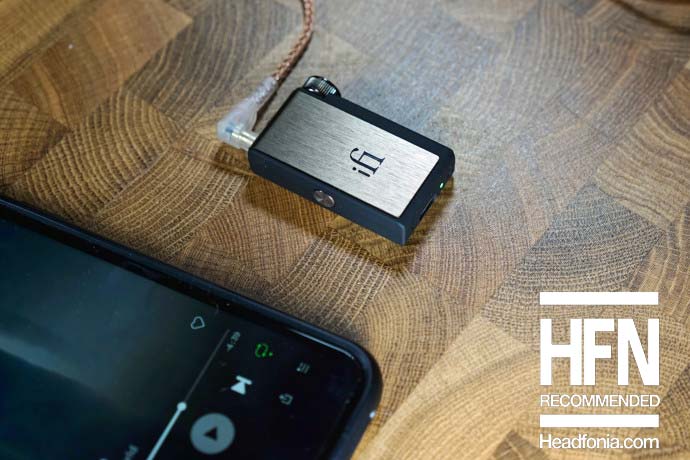
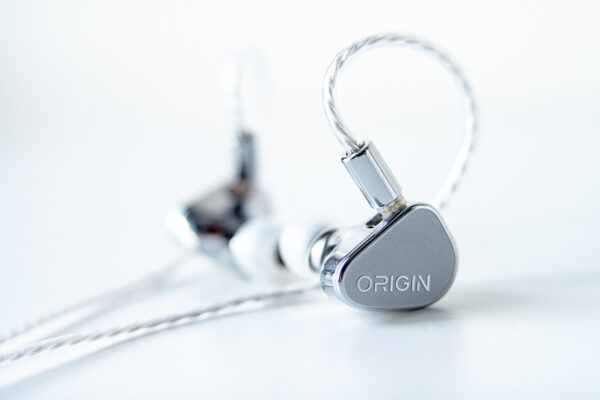
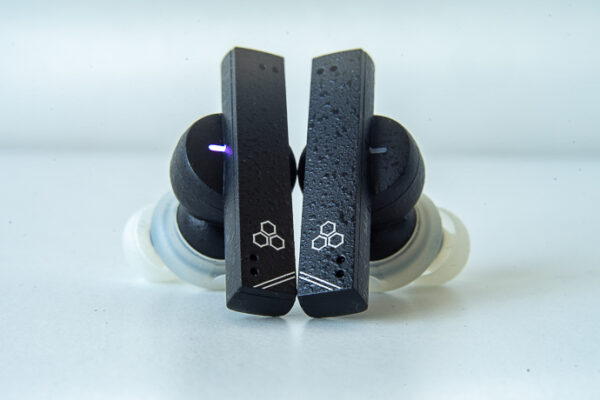
Adi
How does this compare to the BTR5?